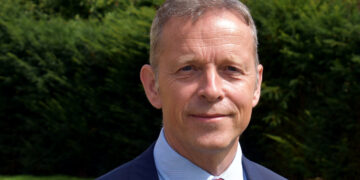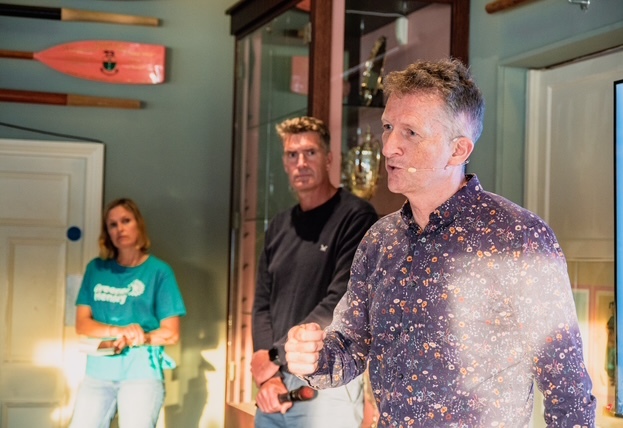AT A sold-out event at Henley’s Leander Club this month, University of Reading climate scientist Professor Christopher Merchant warned that the long-term trend of increasingly frequent winters with intense rainfall is expected to continue as the world warms.
His talk, titled ‘In Our Hands: Our Climate, Our River, Our Future’, was organised by Greener Henley, with sponsorship from Mercers Solicitors.
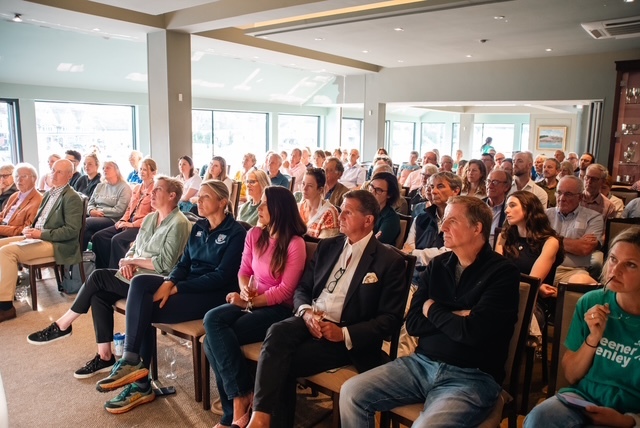
More than 80 people attended the evening of science, insight and community dialogue to hear about the data behind Henley’s red board days (when the Environment Agency advises against river navigation due to strong stream conditions).
Professor Merchant explained that elevated CO2 levels in the atmosphere lead to a rise in air temperature, and with warmer air holding more water vapour and droplets, the potential for heavier rainfall increases too.
“Climate change has led to more winters with intense rainfall in recent decades,” he said.
“There tend to be more red board days in those years — and until we stabilise the climate, I expect these trends to continue.”
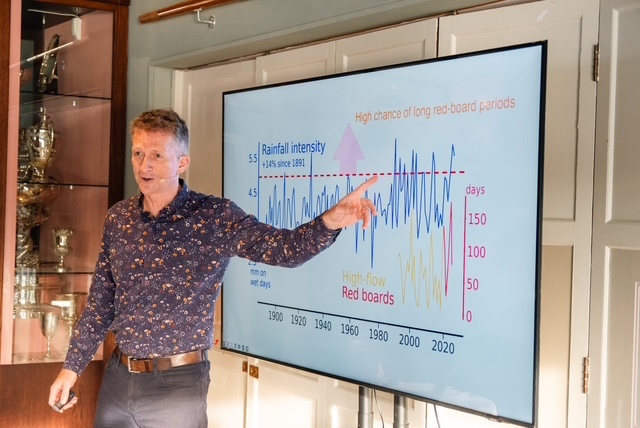
As Henley prepares to welcome more than 300,000 visitors for the world-famous Henley Royal Regatta, and this weekend’s Henley Women’s Regatta, a clear warning has been issued about the mounting impact of climate change on the river that defines the town.
Rowers are not permitted on the water during red board days, meaning that changes to river conditions are already affecting training and leisure, and have the potential to affect events.
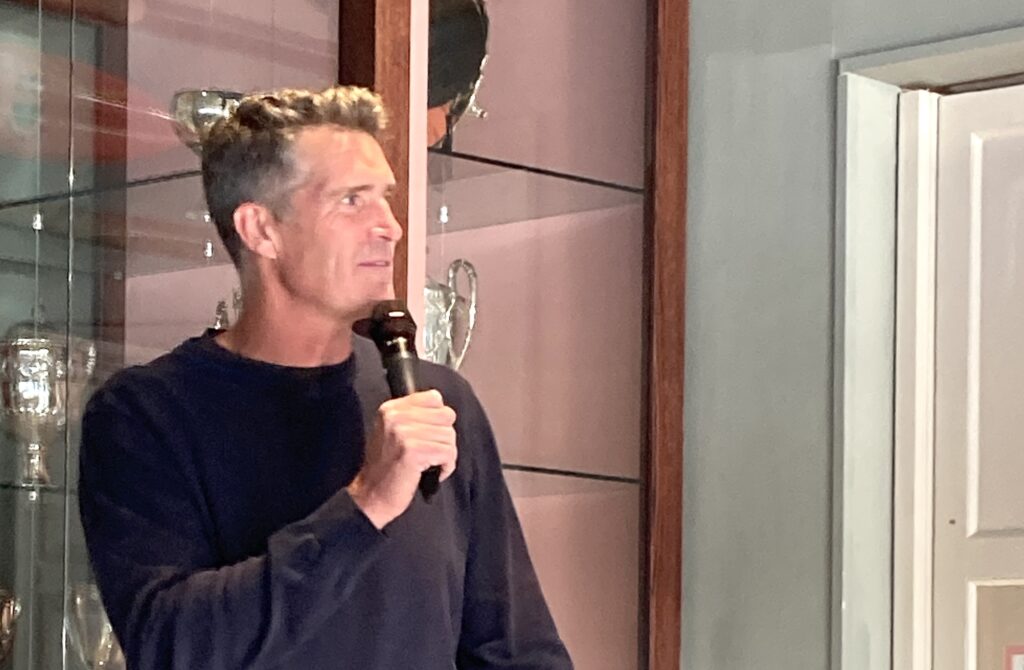
Olympic rowing champion Greg Searle, who hosted the event, said: “An increasing number of winter races are being cancelled because the river is running too fast – this is a very worrying trend.”
Met Office computer simulations of future weather conditions project a rise in rainfall on wet winter days in the UK, similar to the rises seen over past decades.
Changed weather patterns, more intense rainfall, and the impact on river flows are not distant threats but current realities.
Professor Merchant outlined three key facts about the climate that everyone should understand:
To stabilise the climate we need to stop adding greenhouse gases to the atmosphere from use of fossil fuels.
Every tenth of a degree of global temperature change matters – past Ice Ages were just 5°C cooler than today (yet led to a vastly different environment).
We’re heading towards a hothouse world of 3°C or more before the end of this century – but faster action towards net zero can avoid that world.
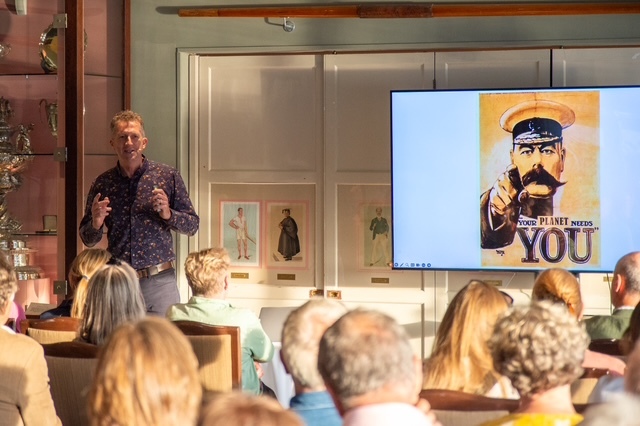
Despite the gravity of the issue, Professor Merchant’s message remained one of possibility and empowerment.
“The world can solve this problem if we get our act together,” he said.
“It’s still possible to have a cleaner, greener, more prosperous world.”
He encouraged people to get behind Greener Henley’s initiatives to make the town safer in the face of climate impacts, cleaner by cutting pollution, and greener by protecting and restoring nature.
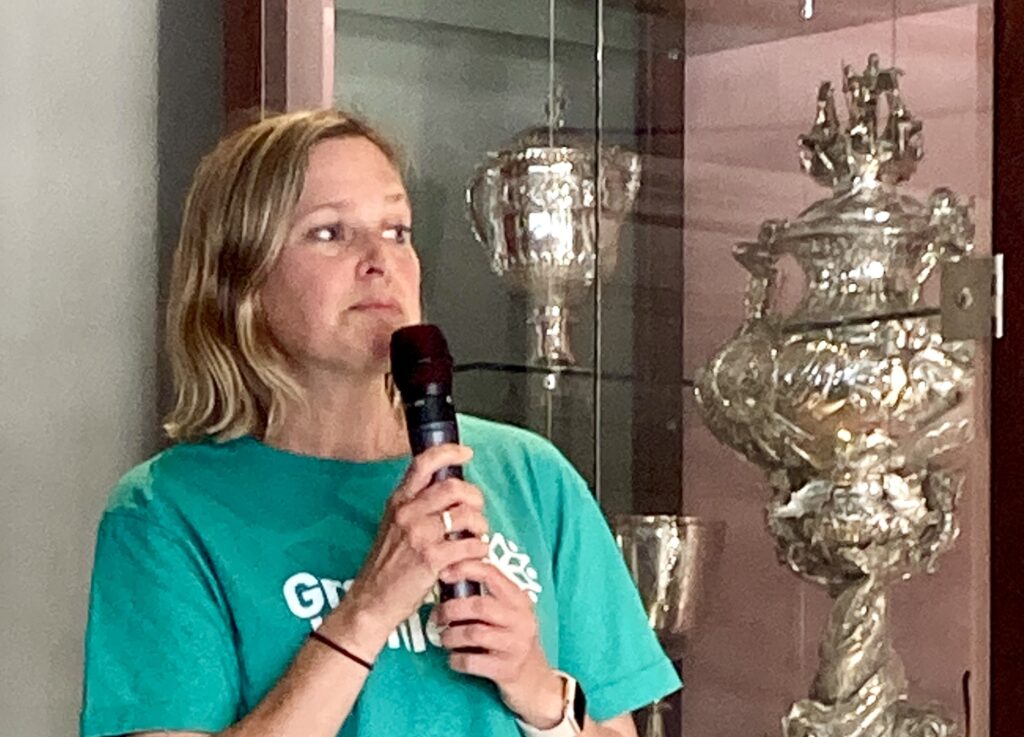
Kate Oldridge, Executive Director of Greener Henley, said: “With the eyes of the rowing world about to turn to Henley, it’s vital we look at how to protect the river at the heart of our town — not just for this summer, but for generations to come.”
Greener Henley’s goal is to actively engage 5000 people by December 2028 – around 25% of the community – in order to reach a social tipping point where lasting, systematic change becomes embedded in everyday life.
The charity is calling on local people to step up and support climate and nature action in three key ways: by joining the Greener Henley movement and signing up for its monthly newsletter; by taking action by making a Pledge for the Planet, for example through buying choices and energy use; and by donating to help fund Greener Henley’s work.
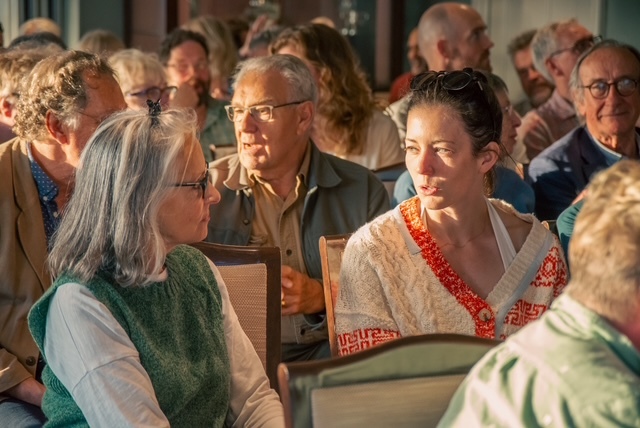
The UK registered charity is run almost entirely by volunteers, local people from different backgrounds, all with the common aim to make Henley safer, greener and cleaner.
For information, visit: greenerhenley.org.uk.




